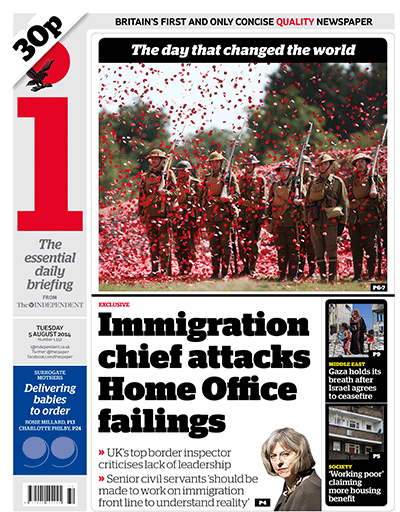i Editor's Letter: Let us focus not on remembrance, but on repentance

Your support helps us to tell the story
From reproductive rights to climate change to Big Tech, The Independent is on the ground when the story is developing. Whether it's investigating the financials of Elon Musk's pro-Trump PAC or producing our latest documentary, 'The A Word', which shines a light on the American women fighting for reproductive rights, we know how important it is to parse out the facts from the messaging.
At such a critical moment in US history, we need reporters on the ground. Your donation allows us to keep sending journalists to speak to both sides of the story.
The Independent is trusted by Americans across the entire political spectrum. And unlike many other quality news outlets, we choose not to lock Americans out of our reporting and analysis with paywalls. We believe quality journalism should be available to everyone, paid for by those who can afford it.
Your support makes all the difference.Amiens, Ypres, Morbecque, Thélus, Thiepval, Arras, Hamburg, Terlincthun, Paddington – the final resting places of the 11 men from my street who died fighting the Great War. The youngest lost his life at 19, the oldest was 40.
The blanket censorship of 1914-15 stopped the British public from being told what was happening while their men were marched off to the Front. Kitchener’s conspiracy to hide the casualties and the existence of the trenches led to propaganda so inept that the US President Roosevelt felt obliged to intervene.
When reporters were eventually allowed to the Front – working under the censor’s veto – the Telegraph’s Phillip Gibbs incensed Kitchener and was threatened with being shot, while the Mail’s Henry Hamilton Fyfe, facing arrest, joined the French Red Cross as a stretcher-bearer to continue his reporting. It took the return of wounded troops for the reality of trench warfare to reach the public.
At Westminster Abbey yesterday, the Very Reverend Dr John Hall told the congregation: “Our focus is not tonight on remembrance. In solemnly commemorating the centenary of the outbreak of the First World War, as we reflect on the failure of the human spirit that led to an inexorable slide into war, let us spend a moment in silent repentance.”
i reader Chris Wood of Haddenham, Bucks, writes with a similar point, and recalls Carl Sandburg’s timeless, unforgiving “Grass”.
That poem begins with an entreaty to “pile the bodies high... I am the grass; I cover all.. Pile them high at Ypres and Verdun...”
Twitter: @olyduff
Join our commenting forum
Join thought-provoking conversations, follow other Independent readers and see their replies
Comments